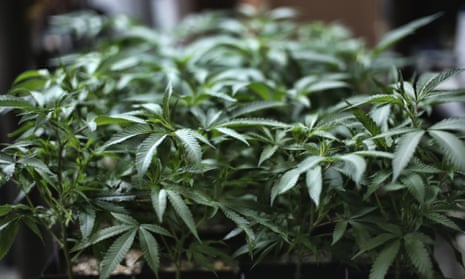A pandemic is gripping Europe with its centre in Great Britain. More than 3 million Britons caught it in 2019-20, of whom 5,657 died – a number that has quadrupled since 2013. Scotland’s death rate has soared to three and a half times that of the whole UK, and is the worst in Europe. Multiple cures are being tested round the world, but the British government opposes every one of them.
This year is the 50th anniversary of Westminster telling the world that its Misuse of Drugs Act (1971) would stamp out illegal drugs for ever. The act failed utterly, but it has never been repealed. Among other horrors, the industry it created now enslaves an estimated 27,000 children and teenagers, some as young as eight, in “county lines” drug gangs. The government has no answer but to throw a few of them in jail.
During any crisis, radical ideas tend to come from troops at the front, rather than from the centre. Drugs are no exception. The Home Office in Whitehall is terrified not of the facts, but of the tabloid press. It is now 20 years since the Runciman committee on reforming the drug laws advised that cannabis be reduced to a class C drug, which Tony Blair’s government reluctantly did before reversing the decision. As a pro-legalisation member of the committee, I will never forget the fury of the well-dressed Stepney dealer who told us we wanted to “do me out of living”. He was a great fan of the anti-reform home secretary Jack Straw.
Since then, evidence of new ways of handling narcotics, soft and hard, has poured in from around the world. The Netherlands, Switzerland and Portugal have been in the lead, with the US and Canada across the Atlantic. For marijuana, the salient point has been its medicinal use. Medicinal cannabis is now legal in most countries.
In Britain, the Home Office was implacable until a media campaign in 2018 for two epileptic children forced it to license the drug for serious pain relief. Figures last month revealed that not a single NHS prescription for cannabis has yet been allowed. British sufferers must still seek relief abroad. The health ministry says fatuously that it wants more research.
Thirty US states have legalised medicinal cannabis, with Donald Trump “100% in favour”. This puts him way ahead of the British home secretary, Priti Patel, and health secretary, Matt Hancock. Nor are they any more sympathetic on hard drugs. The UK government banned Glasgow from opening a safe drug-user centre to help combat the city’s now desperate hard drug crisis. Apparently London retains this power over Scotland.
Meanwhile 15 US states as well as Canada have licensed recreational cannabis, fuelling what is now a booming $16bn industry. Marijuana in California is so commonplace that Napa Valley is growing it, and serving staff go on its sommelier courses. It is commonplace in Britain too. Every city and town, every university and rural backwater, has its gangs and county lines, servicing an industry put by Carol Black for the Home Office at a staggering £9.4bn. People who would not buy clothes from sweatshops in Bangladesh patronise an industry whose Dickensian child labour was detailed in Henry Blake’s grim movie County Lines last month.
For two years local pilot schemes have been using rehabilitation classes, rather than arrests, for drug possession – and without any admissions of guilt or a criminal record. West Yorkshire and London have followed in the steps of Durham, Thames Valley and the West Midlands. In some of these areas a fifth of all crimes and a half of property crime are said to be drug-related, as is most knife crime. This is the measure of the disease.
This week the North Wales police commissioner, Arfon Jones, highlighted the scandal that the government’s own jails are the worst nurseries of drug abuse. Prison drug busts soared 18% last year to 21,575. Jones suggested that, with thousands of prisoners now drug addicts, it would make sense, and be safer, to let them have cannabis legally. Whitehall rebutted this with the cliche that it had a “zero tolerance approach to drugs”.
Zero tolerance would bankrupt every police force in Britain. That is why de facto decriminalisation has resulted in a 75% slump in possession cases over the past decade. The 1971 act is unworkable. But this is only one half of the law. As foreign experience shows, it is only when an illegal market is replaced by proper regulation and control of supply that the dangers of drug abuse can begin to be tackled. As the US has found, danger can merely shift to hard drugs and opioids: Oregon is now decriminalising heroin and cocaine in an effort to control that.
There is no longer any debate. Fifty years of British failure and years of foreign efforts at reform show only one thing: that the criminal law is counterproductive. It is game, set and match to reform. Yet terror of any change seems to grip politicians in power. The can is carried by those on the frontline – the police, prison officers, doctors and social workers.
Modern democracy is driven not by evidence but by fear. We all know that, sooner or later, the dangers of drug abuse must be tamed, as we try to tame the dangers of alcohol and gambling. But in Britain we must wait for foreigners to show us the way. This is not about facts but about courage.
Simon Jenkins is a Guardian columnist

